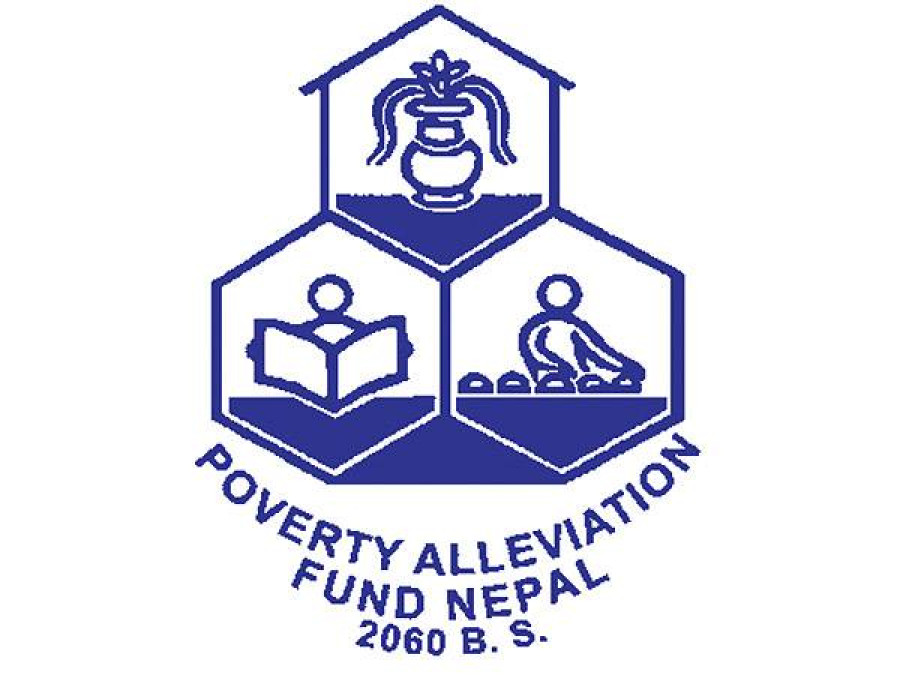Money
Revolving funds under Poverty Alleviation Fund to be transformed into cooperatives
Once Cabinet gives approval, as many as 600 cooperatives will be formed nationwide.
Prithvi Man Shrestha
The government is preparing to transform revolving funds created by the Poverty Alleviation Fund into cooperatives. As provisioned in the budget for the current fiscal year 2020-21, the government is preparing to transform the funds, which were created to finance income-generating activities for the impoverished, into 600 cooperatives across the country.
“The Poverty Alleviation Fund (PAF)’s activities were run in 551 municipalities and rural municipalities. Preparation is underway to establish 600 cooperatives with at least one cooperative in one local government and two in some local governments,” said Nirmal Kumar Bhattarai, vice-president of PAF. “We have sent a draft of the regulation that includes the provision of transforming the revolving funds into cooperatives for its approval. Once the Cabinet approves, the process of establishing the funds as cooperatives begins.”
According to the PAF, a total fund of Rs19 billion is being mobilised by the community organisations that the PAF had helped to be formed. There is a contribution of Rs14 billion from the fund and Rs5 billion from the community organisations.
“Currently, each revolving fund has funds of a few lakhs. Cooperatives will be formed by merging them. After the merger, each cooperative will have enough resources that they can invest in activities that boost rural economy,” said Bhattarai.
As per the proposed regulation, as many as 900,000 households, which are associated with 32,276 community organisations running the revolving funds, will be shareholders of the would-be cooperatives.
But a senior official of the PAF expressed concerns that the transformation of revolving funds into cooperatives would not be possible without first amending the PAF Act. “These funds were created as per the PAF Act. That is why we have also sent a draft of content to be amended in the Act to the Prime Minister’s Office and the Law Ministry so that no legal complication would arise during the transformation process,” said Chhabi Rijal, executive director of PAF.
“With the House of Representatives dissolved, there is a question if the regulation alone will be enough to transform the revolving funds into cooperatives,” he said.
Earlier, these revolving funds have already come under the oversight of the local governments. The PAF, which helped community organisations run anti-poverty activities through the revolving fund, is no longer coordinating the activities of these community organisations. “Our role will be to provide training to the people of cooperatives and enhance their capacity and help the registration process of cooperatives,” said Bhattarai. “The government has allocated Rs150 million for these tasks which we will release once the cooperatives are formed.”
Currently, the PAF has hardly any role in poverty alleviation. In fact, the government had decided to scrap the fund after the local governments were formed and the World Bank also ended its support for the activities under the PAF.
As per the Action Plan on Restructuring of the PAF approved by the Cabinet on November 11, 2018, the PAF Act should have been scrapped by mid-December 2018, dissolving the PAF as an autonomous entity.
Despite the dissolution, officials at the PAF told the Post that it was continued at the interest of the Prime Minister KP Sharma Oli. Bhatarai had earlier told the Post that the Prime Minister didn’t want to discontinue the programme because of political reasons, as the ruling Nepal Communist Party could be blamed as the party that is not in favour of the poor.
The PAF, which was formed at the height of the Maoist insurgency in 2003 to run the targeted activities to alleviate poverty at the local levels in the absence of elected local governments, was considered unnecessary after the local elections were held in 2017.
In recent years, the PAF has come under public scrutiny after the Commission for Investigation of Abuse of Authority filed two corruption cases at the Special Court against 50 senior officials and staff of the PAF in March 2015 and April 2016.
In September 2018, the Special Court convicted nine PAF officials, including immediate executive director Raj Babu Shrestha, of corruption.
A probe conducted by the National Vigilance Centre, a corruption watchdog under the Prime Minister, also unearthed several irregularities in the PAF in 2019.
According to a report obtained by the Post, the centre found possible irregularities of Rs185.96 million in the activities under the PAF’s Infrastructure Sub Project and Income Generation programme. The centre also found office equipment valued at Rs41.47 million missing.




 16.12°C Kathmandu
16.12°C Kathmandu













